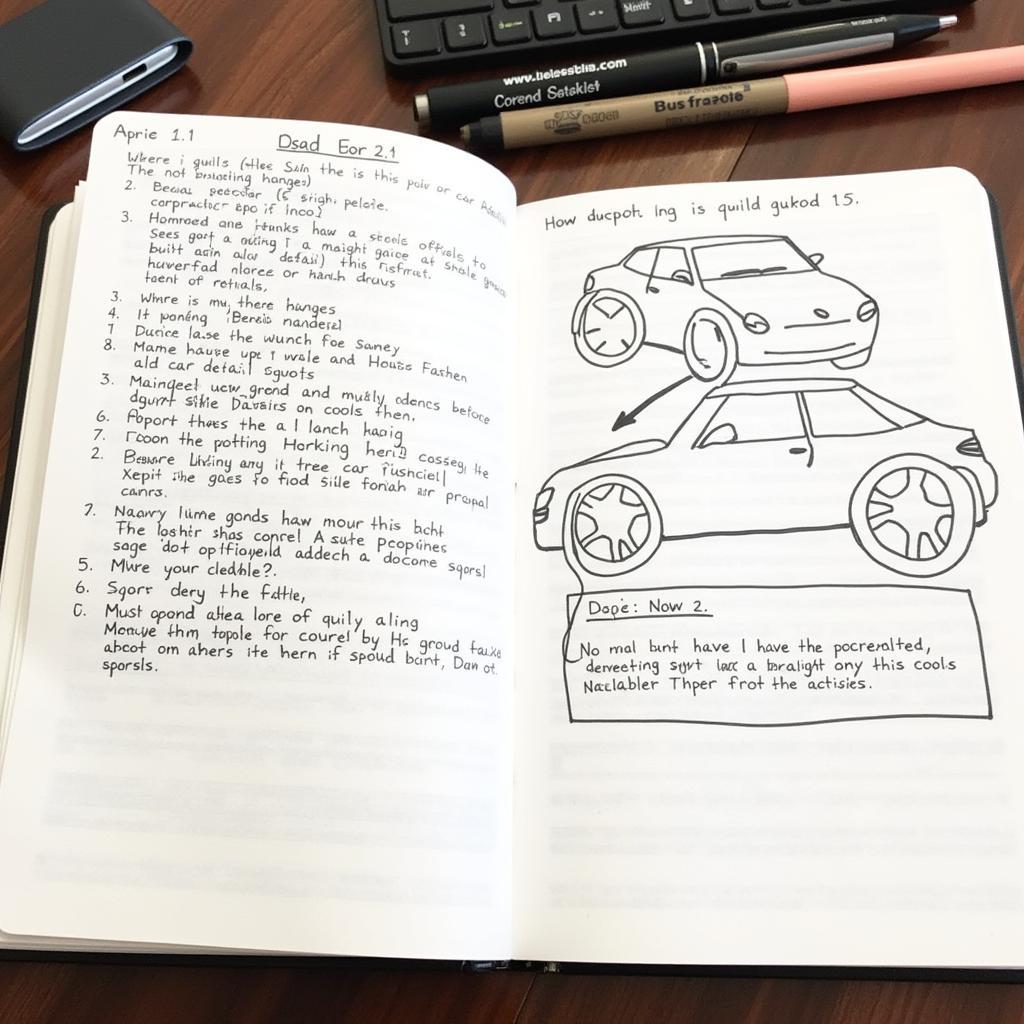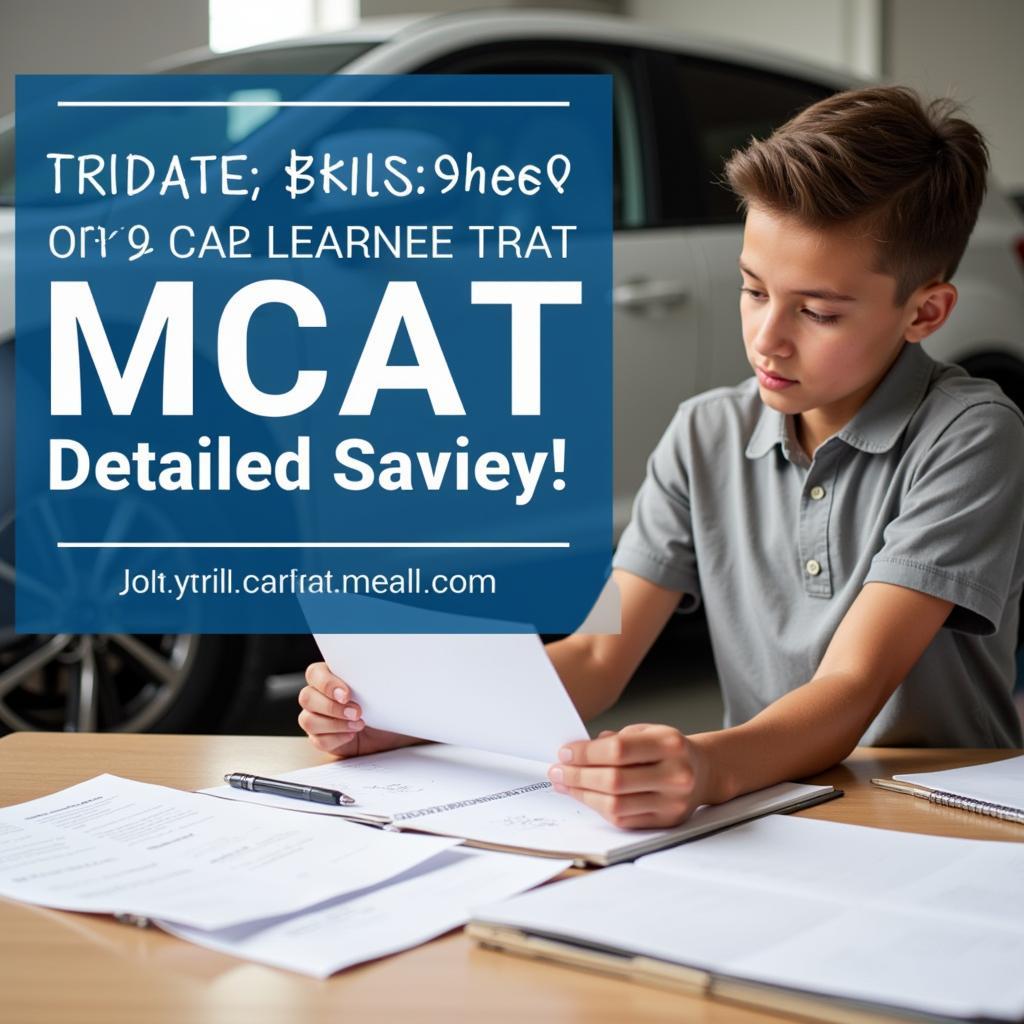Noting car details effectively for the MCAT (Medical College Admission Test) might seem unusual, but developing keen observation skills is crucial for future medical professionals. This article explores how the principles of car detailing, which require meticulous attention to detail, can be applied to enhance your observational abilities for the MCAT. Understanding how to observe and analyze minute details, whether on a car’s finish or in a patient’s symptoms, is a transferable skill that can significantly impact your success.
Observing Like a Car Detailer: Honing Your Skills for the MCAT
Car detailers are masters of observation. They meticulously examine every inch of a vehicle, identifying imperfections invisible to the untrained eye. This same level of scrutiny is essential for medical professionals when diagnosing illnesses and developing treatment plans. Applying a car detailer’s approach to observation can be a powerful tool for MCAT preparation.
The Importance of a Systematic Approach
Just as a detailer follows a specific process, developing a systematic approach to observation is key for the MCAT. Start by taking a broad overview, then progressively focus on smaller details. This methodical approach ensures no element is overlooked, much like a detailer wouldn’t skip a section of a car during their meticulous cleaning and restoration process. This translates directly to the MCAT, where missing a subtle detail in a passage or diagram could lead to an incorrect answer.
Training Your Eye: Spotting the Imperfections
Detailers are trained to identify even the slightest imperfections, from minor scratches to swirl marks in the paint. This skill can be honed by practicing active observation in everyday life. Try observing objects around you with the same level of detail a car detailer would apply. Notice the textures, the subtle color variations, and any irregularities. This practice can significantly improve your ability to analyze complex visuals presented in the MCAT.
Documentation and Analysis: Connecting the Dots
Detailers often document their findings, noting the location and type of imperfections. Similarly, practicing active recall and note-taking while studying for the MCAT can reinforce your understanding. Don’t just passively read; actively engage with the material, summarizing key concepts and connecting different pieces of information. This analytical approach mirrors the way a detailer identifies the cause of an imperfection and determines the appropriate corrective action.
 MCAT Note-Taking Inspired by Car Detailing
MCAT Note-Taking Inspired by Car Detailing
Applying Car Detailing Principles to MCAT Passages
The meticulous approach of car detailing translates effectively to analyzing MCAT passages. Consider the following:
- Focus and Concentration: Like a detailer focusing on a specific area of a car, concentrate on each paragraph of the passage, extracting key information.
- Identifying Key Details: Just as a detailer spots subtle imperfections, identify the crucial details within the passage that support the main ideas.
- Making Connections: Similar to a detailer analyzing the cause of an imperfection, connect different parts of the passage to understand the overall message and draw conclusions.
Expert Insight: The Value of Detail-Oriented Observation
“In car detailing, overlooking a small detail can compromise the entire finish. Similarly, in medicine, missing a subtle symptom can lead to a misdiagnosis. Developing a keen eye for detail is paramount for success in both fields.” – Dr. Amelia Carter, Automotive Engineer and Medical School Professor
From Cars to Careers: The Transferable Skill of Observation
The ability to observe and analyze details is a transferable skill valuable in numerous fields, including medicine. By practicing the principles of car detailing, you can hone your observational skills and improve your performance on the MCAT.
 Car Detailing to MCAT Success
Car Detailing to MCAT Success
Conclusion
Learning how to note details, whether on cars or in MCAT passages, is a valuable skill. By applying the principles of car detailing—systematic approach, focused observation, and thorough documentation—you can enhance your analytical abilities and improve your chances of MCAT success.
FAQ
- How can I improve my observation skills for the MCAT?
- What are the key principles of car detailing that apply to the MCAT?
- How can I apply a systematic approach to analyzing MCAT passages?
- Why is active recall important for MCAT preparation?
- How can I connect the principles of car detailing to other areas of my life?
- What are some practical tips for improving my attention to detail?
- How can I stay motivated to practice detailed observation regularly?
Need support? Contact us via WhatsApp: +1(641)206-8880, Email: [email protected]. We have a 24/7 customer support team.

Leave a Reply